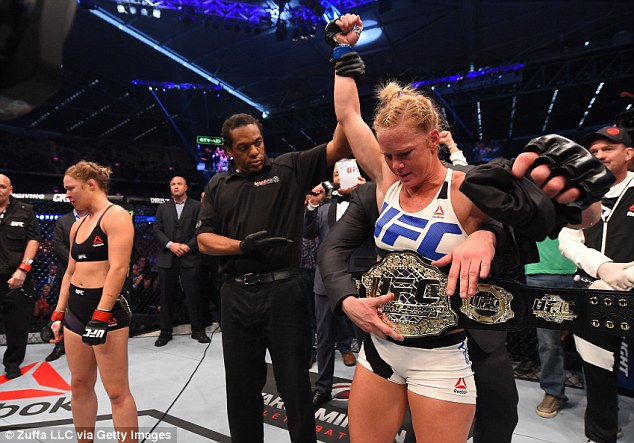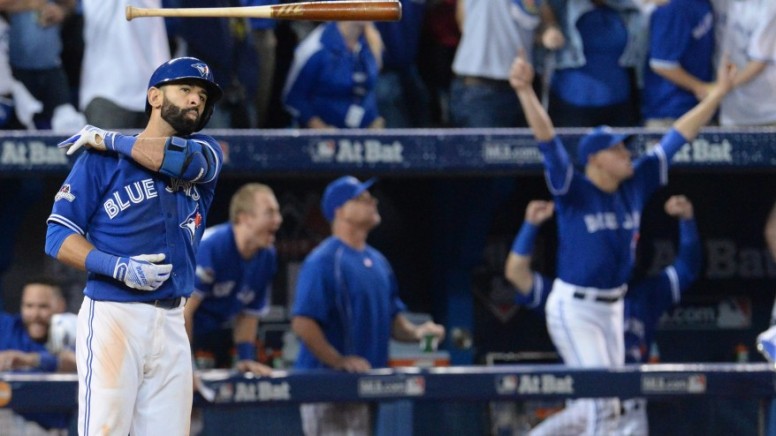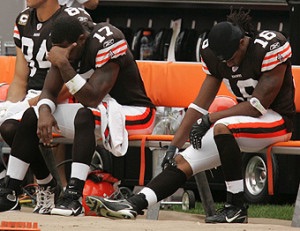
(Zuffa LLC via Getty Images)
Before I begin, it should be known that I know next to nothing about UFC fighting. I don’t pretend to be a journalist in this sport. That being said, there’s no doubt that UFC is growing in popularity each and every year. When Georges St. Pierre first broke onto the scene, many fans in Canada were excited that one of the pioneers in the sport was making his mark on a growing sport. Now he’s regarded as one of the greats of all time.
Ronda Rousey has gone through the same meteoric rise, having gone on an undefeated run of victories and bringing a new name to UFC. However, it all came to a crashing end after her loss to Holly Holm. Since then, many people have questioned on how Rousey can return back to the spotlight. There has also been discussion on how she dealt with the loss already (Hint: She didn’t take it very well, and it is very depressing just to think about), and how she can recover from the situation that she has been in for the past while.
But at a perfect time in her career, Ronda Rousey has the best chance she has to retire now and go out on a personal high.
Why? Well, if she returns, there are two things that can happen if she returns back to the ring. If she wins, there’s now an added pressure to keep on winning, and that can’t be the best thing for someone clearly undergoing some serious mental trouble. The last thing she needs is more external pressure. If she loses, then obviously there’s the pain of loss that has happened, and that can’t be good for anyone, never mind someone like Ronda Rousey. It’s a no-win situation.
Also consider the physical toll of these matches. I’m no doctor, but if football players can get CTE by simply being tackled and hit by moving players, I can’t imagine what a UFC fighter must go through during a match. Conclusion: the results don’t look too good for all the concussion activists everywhere. And who’s to say that her mental problems may or may not have been caused by the senseless beating she has taken over the years.
It’s not like Rousey is going to leave lots of money on the table by quitting UFC. She already has worldwide fame due to her talents, and has taken full advantage of that. She has a movie deal, she landed the cover of Sports Illustrated’s swimsuit issue, and there’s no limits as to what she can do in her career, after she gets her mental problems sorted out. She could even coach the next generation of UFC fighters if she chooses.
The question isn’t what Rousey will do when she retires from UFC – it’s when she decides to retire. Right now, she is at a crossroads not only in her sporting career but also in her entire life as well. What she does can ultimately decide the fate of the sport as a whole. It would be remiss to dismiss this impact, and Rousey should listen to her gut – and her mind- to make this important decision.






